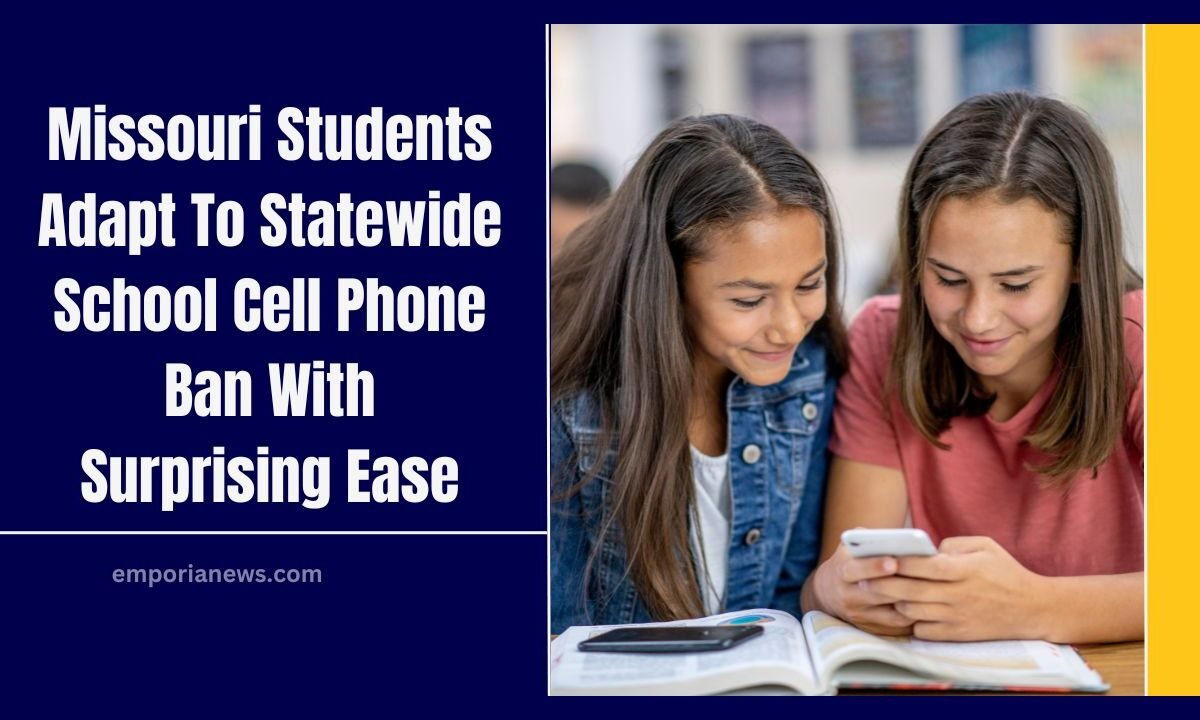The 2025–2026 school year has brought a major shift for students across Missouri as they adjust to the statewide ban on cell phones in schools. Three weeks into the academic year, schools report that students are adapting more smoothly than expected.
The law, passed by the Missouri legislature in July 2025, requires all public school districts to enforce comprehensive policies limiting student cell phone and electronic device use during the entire school day.
Early observations from classrooms, cafeterias, and hallways show clear behavioral changes — and mostly positive outcomes.
Details of the Statewide Ban
The law mandates that cell phones and similar personal electronic devices must remain unused during class time, passing periods, and lunch, unless allowed by school officials for specific instructional purposes or emergencies.
While the policy initially raised concerns among parents about emergency communication, schools have put systems in place to address safety concerns.
| Policy Element | Description |
|---|---|
| Scope | Applies to all public K-12 schools in Missouri |
| Effective Date | August 2025, start of the 2025–2026 school year |
| Main Restriction | No student use of cell phones or electronic devices during the school day |
| Emergency Protocol | Students may access phones from backpacks during emergencies |
| Goal | Improve focus, reduce distractions, and promote in-person social interaction |
Administrators say the policy is intended to help students engage more with lessons, peers, and teachers while cutting down on distractions and cyberbullying during school hours.
Students Adjusting to a New Normal
At St. Charles High School, where a similar phone ban was piloted last year, students say the adjustment has been easier than expected. Senior Colleen Ney noted that she didn’t find it to be a major problem, while fellow senior McKenzie Davis said it has improved student engagement and social connections.
One of the most visible changes has been in school cafeterias, where students are now talking to each other instead of scrolling on their phones. Sophomore Laurali Thomas described the lunchroom as “louder” and more social this year.
Teachers have reported that classroom participation has increased, with fewer students distracted by incoming messages or social media. Many say students are more attentive, collaborative, and willing to contribute to group discussions.
How Districts Prepared
The City of St. Charles School District implemented its own classroom phone ban during the 2024–2025 school year, giving students and staff time to adapt before the statewide mandate. Superintendent Jason Sefrit credited this transition period with making the rollout of the new law smooth and successful.
Other districts, including Rockwood and Parkway, have also reported minimal resistance and high compliance. A Parkway teacher remarked that the biggest surprise has been how quickly students have accepted the change.
| District | Pre-Ban Preparations | Outcome |
|---|---|---|
| City of St. Charles | Piloted classroom ban last year | Smooth statewide transition |
| Rockwood | Early enforcement of classroom rules | Students more focused on academics |
| Parkway | Teacher training and clear enforcement plan | Students adapting faster than expected |
Missouri’s bold decision to implement a statewide cell phone ban in schools is already showing results. Students appear to be more engaged in class, more social during breaks, and less distracted overall.
While concerns about emergency communication linger, schools have assured parents that students can access their phones from backpacks if needed.
As the school year progresses, Missouri’s approach may serve as a model for other states looking to boost academic focus and social interaction by reducing digital distractions during the school day.




